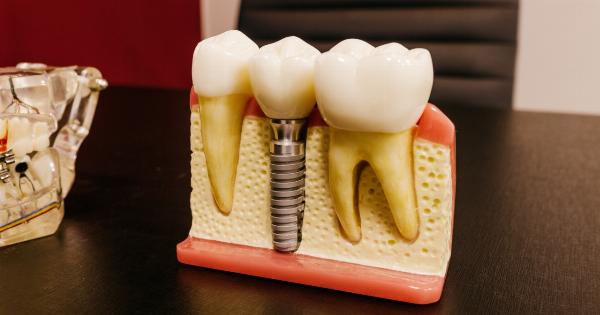If you have missing teeth, you may be wondering what your options are for replacing them. Two common solutions are dental implants and bridges.
Both options have their advantages and disadvantages, and which one is better for you will depend on your specific needs.
What Are Dental Implants?
A dental implant is a small titanium post that is surgically implanted into the jawbone. Over time, the post fuses with the bone, providing a strong foundation for a replacement tooth.
Once the implant is fully integrated into the bone, an abutment is attached to the post, which serves as the base for a crown or other restoration. Dental implants look and function like natural teeth and can last a lifetime with proper care.
What Are Bridges?
A bridge is a dental restoration that replaces one or more missing teeth. It consists of one or more artificial teeth that are attached to neighboring teeth with crowns. The neighboring teeth serve as anchors for the artificial teeth.
Bridges are a cost-effective way to replace missing teeth, but they do require the removal of some natural tooth structure.
Advantages of Dental Implants
There are several advantages to dental implants:.
- Dental implants look and function like natural teeth
- Dental implants are a permanent solution
- Dental implants do not require the removal of any natural tooth structure
- Dental implants stimulate the bone, which can help prevent bone loss in the jaw
Disadvantages of Dental Implants
While dental implants have many advantages, there are also some disadvantages:.
- Dental implants can be more expensive than bridges
- The implant process can take several months to complete
- Not all patients are good candidates for dental implants
Advantages of Bridges
There are several advantages to bridges:.
- Bridges are a cost-effective way to replace missing teeth
- Bridges can be completed in a shorter amount of time than implants
- Bridges do not require surgery
Disadvantages of Bridges
While bridges have many advantages, there are also some disadvantages:.
- Bridges do require the removal of natural tooth structure
- Bridges may need to be replaced after several years
- Bridges do not stimulate the bone, which can lead to bone loss in the jaw
Which Is Better?
Ultimately, whether dental implants or bridges are better for you will depend on your specific needs and circumstances. If you are looking for a permanent solution that looks and functions like natural teeth, dental implants may be the better option.
However, if you are on a budget and want a cost-effective solution, bridges may be the better choice. It’s important to talk to your dentist about your options and make an informed decision.
Caring for Dental Implants and Bridges
Both dental implants and bridges require proper care to ensure they last as long as possible.
For dental implants, it’s important to practice good oral hygiene, including brushing and flossing regularly and visiting your dentist for checkups and cleanings. For bridges, it’s also important to practice good oral hygiene and avoid chewing on hard or sticky foods that could damage the bridge.
Conclusion
Both dental implants and bridges offer solutions for missing teeth, but each has its own set of advantages and disadvantages. Ultimately, the best solution for you will depend on your individual needs and budget.
It’s important to talk to your dentist to determine which option is right for you and then properly care for your restoration to ensure its longevity.























